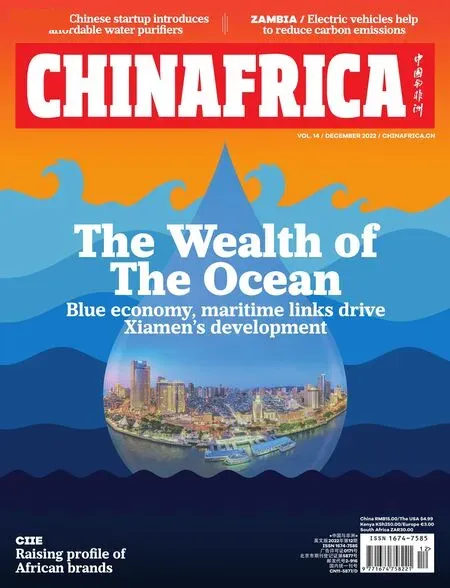The Rise of Consumerism

Irrelevant to Happiness
TAIWO BLESSING OGUNSEYI
A 36-year-old Nigerian lecturer in Yibin,Sichuan Province
Consumerism, which is also referred to as materialism,is a condition where one buys goods not necessarily because they are needed, but to get some form of happiness from them, or for the status they confer. In other words, materialism is purchasing things to derive some level of self-esteem,happiness, fulfilment, and status from those things, and usually,those feelings of fulfilment are short-lived. As the saying goes,“Happiness is not about collecting material things. It is about having a deep feeling of contentment and knowing that life is a blessing.”In my opinion, people favour materialism and become opposed to material possessions for different reasons. As said earlier, some might want to derive fulfilment and happiness,which are transient. Others seek social recognition,making a statement about their uniqueness and style, and/or gaining people’s attraction and acceptance. However, there are some set of individuals who use materialism as a coping mechanism for situations that make them insecure, anxious, or depressed.Generally, some negative attributes associated with materialism are short-term happiness, loneliness, poor life choices, misplacement of priority, and sometimes debt.Positive sides of materialism can be associated with an increase in performance level as the short euphoria could become a trigger for better performance and,secondly, one can buy some level of satisfaction. While one does not need to live a lowly life to be simplistic, it is essential to adjust one’s focus and attitude when one buys material possessions.
Some of the ways to escape materialism and fill the internal void in people are to practice gratitude. Fundamentally, it is important for people to know that they are not the things they own and therefore should strive to separate their identity from their possession. Secondly, creating a system of goals and challenges could be a way out. Thirdly, building good habits such as emotional control, time management,discipline, and giving could help reduce the desire for material things. Lastly, I would say avoid the “seeking approval and acceptance game.” CA
Fundamentally, it is important for people to know that they are not the things they own and therefore should strive to separate their identity from their possession.

A Challenge to Our Generation
HU WANYING
A 28-year-old marketing specialist in Beijing
I had regarded myself a frugal person until the third year into my career, when I sorted out my belongings before moving house. I was surprised to find a stock of hair masks, toner, sunscreen, and other cosmetic products that could not have been used up before expiry. Most of them were purchased during shopping festivals and promotions, some for reasons I couldn’t remember. I couldn’t help but start to re-examine my shopping behaviour and ask myself the question: Why do I shop?
Buying things has never been easier with the rise of e-commerce platforms and online payment services. We can do it in the subway, in our offices, or while standing in a queue. With a smartphone, we can access hundreds of millions of products.We are all tempted to buy more as the tentacles of consumption are stretching infinitely: shopping apps with social functions, livestreaming celebrities with great influence, pompous rich people connecting belongings to identity on social media, etc.
But what does consumption bring? For some, it may be an effective way to cope with stress from work or raise their status at workplace, but there is no doubt that prolonged and massive consumption brings about a sense of emptiness. As French author and philosopher Jean Baudrillard said in his book, objects form a system that controls people. You don’t own your objects; you are bewitched by the signs, of which objects are a part.This year, Taobao did not release its sales figures during the just-concluded Double 11 shopping festival. In previous years it would have been a hot topic of market discussion in the days that followed. Are people waking up to the drawbacks of excessive shopping,or is this just an intermission in a long battle with consumerism? We don’t know. I was reading Baudrillard’sThe Consumer Societytoday but still clicked on Taobao out of habit to check the delivery progress during breaks.There has never been a time with higher material abundance than today. While we enjoy conditions that our predecessors could only dream of, we are burdened with the pressure to break out of our consumer society. CA

